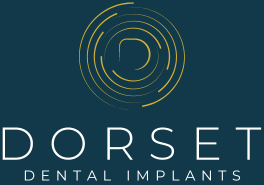Sinus lifts and Dental Implants: Treatment, Procedure and Benefits
Everyone has sinus cavities in their head. In most cases, the sinuses help us to breath clearly and speak, however, some may suffer from blocked sinuses or struggle with commonly-occurring infections such as sinusitis.
If you have lost a tooth in your upper jaw, then you may be considering a dental implant. You may not have enough bone in your upper jaw to support an implant.
If so, there is a risk that your implant will stick up into your sinus which will cause pain and infection.
Here at Dorset Dental Implants, we are dedicated to providing our patients with the highest-quality care and dental treatment.
We are always committed to improving our methods by using the latest technology to ensure that patients leave our clinic smiling.
What is a sinus lift?
A sinus lift is a kind of bone graft, which creates space in the upper jaw to allow for the placement of an implant.
The sinus has to be lifted in order for the implant to be placed.
If you do not have enough bone in your upper jaw, your dentist will not be able to begin your implant treatment until you have sufficient space and bone.
Why would I need a sinus lift?
- Dental implant: You may be needing a sinus lift to make space for an implant.
- Tooth loss: Tooth loss leads to bone loss, so you will need a sinus lift to strengthen and increase the bone of the upper jaw.
- Gum disease: Periodontal disease leads to bone loss due to a weakening of the mouth and gum structure.
- Sinus problems: Your maxillary sinus is too close to the upper jaw, which increases the risk of an implant sticking up into this cavity and causing pain and infection.
What happens during a sinus lift procedure?
Before your surgery:
During an initial consultation, the kind of bone graft material will be confirmed. This will either be a small piece of bone from your own body (autograft), a bone from a bovine animal (xenograft) or a synthetic option (Alloplast).
Once you have agreed on the bone material that will be used, your dentist will take some x-rays of your jaw and sinus.
During the procedure:
- You will be placed under anaesthetic for the procedure so you will not notice or feel any pain. If you are a nervous patient, see more here.
- The surgeon will lift away the gum tissue at the back of your mouth in order to show the bone underneath.
- The bone graft material is placed carefully into the sinus cavity.
- The incision is closed with stitches.
Aftercare and healing process:
Once the anaesthetic wears off, you may experience some tenderness and swelling, but this is often minimal.
After the procedure be careful not to blow your nose or sneeze because this could move the newly-placed bone graft material or dislodge the stitches.
Our dentists might provide you with a saline spray to keep your nose moist, or other antibiotic prescriptions to help prevent blocking or swelling of the sinuses.
Risks of a sinus lift
Any surgery has its own risks, however, the chances of risk are very small.
If you experience any of the following symptoms after a sinus lift surgery, then call your emergency dentist:
- If swelling increases rather than go down
- Bleeding continues after 48 hours
- Bleeding is continuous
- You think the bone graft has dislodged after blowing your nose
- You develop a high temperature
The benefits outweigh any risks:
- Makes having a dental implant possible
- Prevents sinus damage
- Replaces bone loss which has happened as a result of periodontitis
- Resolves damage caused by tooth loss
- Better oral health
Our team at Dorset Dental Implants pride themselves for their expertise, and their attention to customer comfort, care and satisfaction. Meet our team.
Call us today on 01202 973 300.
